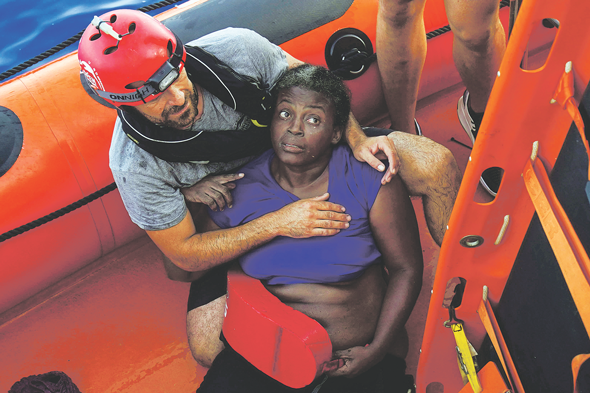
By Crux Staff’
YAOUNDÉ, Cameroon (Crux) — Bishops in Africa say they need to work together to mitigate the risks of illegal immigration.
Members of the Episcopal Conferences of Africa and Madagascar (SECAM) met Dec. 6-9 in Abidjan, Ivory Coast, on the theme: “The sensitization of Church structures on the challenges of Migration and Human trafficking in Africa in order to respond appropriately on the basis of Theology, to human mobility.”
Church leaders said there was a need to find ways of taking a pastoral approach to the question of illegal migration, which has been hurting the African continent for several decades.
“Migration ought to be recognized not as a new phenomenon, but rather as a natural human response to different crises,” said Bishop Ignace Bessi Dogbo, the president of the bishops’ conference of Ivory Coast.
“Migration is a testimony to the innate desire and aspiration of every human being to wellbeing and a better life,” he said. The bishop called on the Church to show solidarity with migrants, refugees and victims of human trafficking.
“The Holy Spirit will help us find an attitude of openness which enables us, in the light of theology and international accords, find pastoral responses to the challenges of migration,” Bishop Bessi Dogbo said.
He said this includes welcoming migrants, protecting them, promoting their welfare and helping them integrate.
The SECAM working group on migrants is the outcome of a meeting that was jointly organized by SECAM and the International Catholic Commission on Migration that took place Sept. 7-9, 2012 in Accra, Ghana.
Its membership consists of the Secretaries General of the eight Regional Episcopal Conferences in Africa, two officials from SECAM, a representative of Caritas Africa, a representative of the Catholic Commission on Migration and a representative of the African Union.
The president of the SECAM working group on migration, Father Mesmin-Prospère Massengo said reducing the risk of migration remains the way to go, and that requires a sharing of experiences.
“We would like to be less theoretical. What ought to be done is reduce the risks of illegal migration. We wish to see more collaboration amongst different churches, that is, those at the start, those in transit zones like Morocco, Lybia and Tunisia and those on arrival,” the Congolese priest said.
Father Massengo said resolving the problem of migration requires competences across the spectrum, noting that SECAM’s liaison office at the African Union will “share the results of its work on migrants with national decision makers and with international organizations.”
